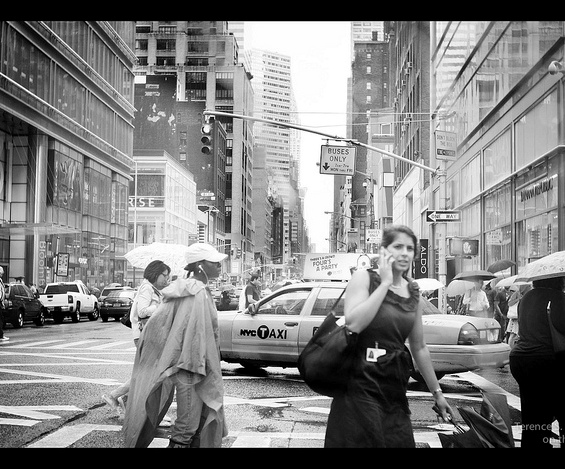I was part of an interview team, talking individually with four candidates for a communication research job. Human Resources had provided us with a set of “behavioral interview” questions, which meant we would be asking things like “What’s the biggest failure you’ve ever experienced?” and “Where do you see yourself in 10 years?”
We followed the HR guidelines, but I asked one additional question, and it turned out to be the differentiator.
“What do you think of our web site?”
Three of the four gushed about how wonderful it was. The fourth said it was rather boring and uninteresting.
Guess which candidate we hired?
The job interview is a staple of organizational life. Whole libraries and consulting industries have been built around the interview, with the “behavioral interview” serving as the current interview canon.
Rather than ask someone how they overcame a career setback, I’d prefer to ask them who their favorite poet is.
Imagine being asked that in a job interview. Imagine asking that in a job interview.
And yet there may be more sense in a question like that than those behaviorally correct questions we use today. You’d learn something unexpected, for one thing. Or you’d learn that a candidate doesn’t like or read poetry, which is not a disqualifier, bit it might speak volumes about how a candidate handles the unexpected.
Job interviews, for both the interviewer and the candidate, contain drama, anxiety, tension, hope, fear, uncertainty — all those emotions and realities that make for great poetry.
And like other aspects of work life, interviews contain their own inner poetry. An interview is the result of a mating dance of organizational need and individual desire.
In an interview, questions and answers are both imagined and practiced before the actual event. Both interviewers and candidates do this, searching for the right words that will crystallize thoughts. Sounds something like poetry?
Interviews are verbal langauge — and poetry is meant to be read aloud (or that was the original intent, anyway).
Interviews, like poetry, are ultimately about ideas, even though they are ostensibly about people. Behind the people in an interview are ideas about careers, employment, the future, and organizational goals and objectives.
And like poetry, interviews are about capturing attention, being different, standing out in a good way or a novel way.
An interview can be considered the creation of a poem. Interviewers and candidates come together, and a relationship is born, sometimes only briefly. But each interview is simultaneously an organizational and personal poem.
Tell me a poem, a story
of a favored poet or poem,
one who changed your life,
your mind, opened up
possibilities, or made you
feel secure as your anchors,
your moorings, were removed.
Speak to me of your need;
describe the expectations
(are they great ones?), explain
how we soar together, toward
the sun, if not the moon,
tell me how I become
part of your larger self.
Photograph by Terence S. Jones. Sourced via Flickr. Poetry at Work™ post by Glynn Young, author of the novels Dancing Priest and the recently published A Light Shining.
________________
Buy a year of happy work mornings today, just $5.99. In June we’re exploring the theme Mirror, Mirror.
Now you can easily follow our new Poetry at Work posts. Add one of our Poetry at Work badges to your blog or website today!
- Poets and Poems: Sandra Marchetti and “Diorama” - April 24, 2025
- Poets and Poems: Christina Cook and “Roaming the Labyrinth” - April 22, 2025
- Longfellow’s “Paul Revere’s Ride”: Creating a National Legend - April 17, 2025



Mary Sayler says
What a great idea! Wonder what would happen if people asked potential spouses about a favorite poem before committing to a life-long relationship. If the other person seems baffled, no problem, but a gag reflex or super-strong reaction such as “I hate the stuff!” might be cause to back away very, very carefully 🙂
Megan Willome says
I haven’t had many job interviews, but interviewing people is part of my job. It’s one of my favorite things to do because as much as I prepare, there’s always something unpredictable that happens. And when the interviewee says that wonderful, unexpected thing, I can actually see it in Times New Roman, 12 point, 1-inch margins and no spacing between paragraphs. That’s when I know it’s good.
Monica Sharman says
And not only would we learn something unexpected, but the behaviorally correct questions themselves are unexpected. It’s the kind of question an interviewee can’t prepare a canned answer for.
I think part of the interview process should be a lunchtime basketball pick-up game. 🙂 It’s unexpected, their guard is down, we see more of who they really are…
Glynn says
Monica, one time I played men’s volleyball with a church group — and watched good friends become vicious animals on the court, led by the pastor. I think you’re on to something.
Martha Orlando says
What a unique way to think about the interview, and it makes such sense! Love the closing poem, too!
davis says
give me a head hunter with words
long beautiful words
shining gleaming streaming
golden olden
let them fly in the breeze
and get caught in the trees
a home for q’s and t’s
those words